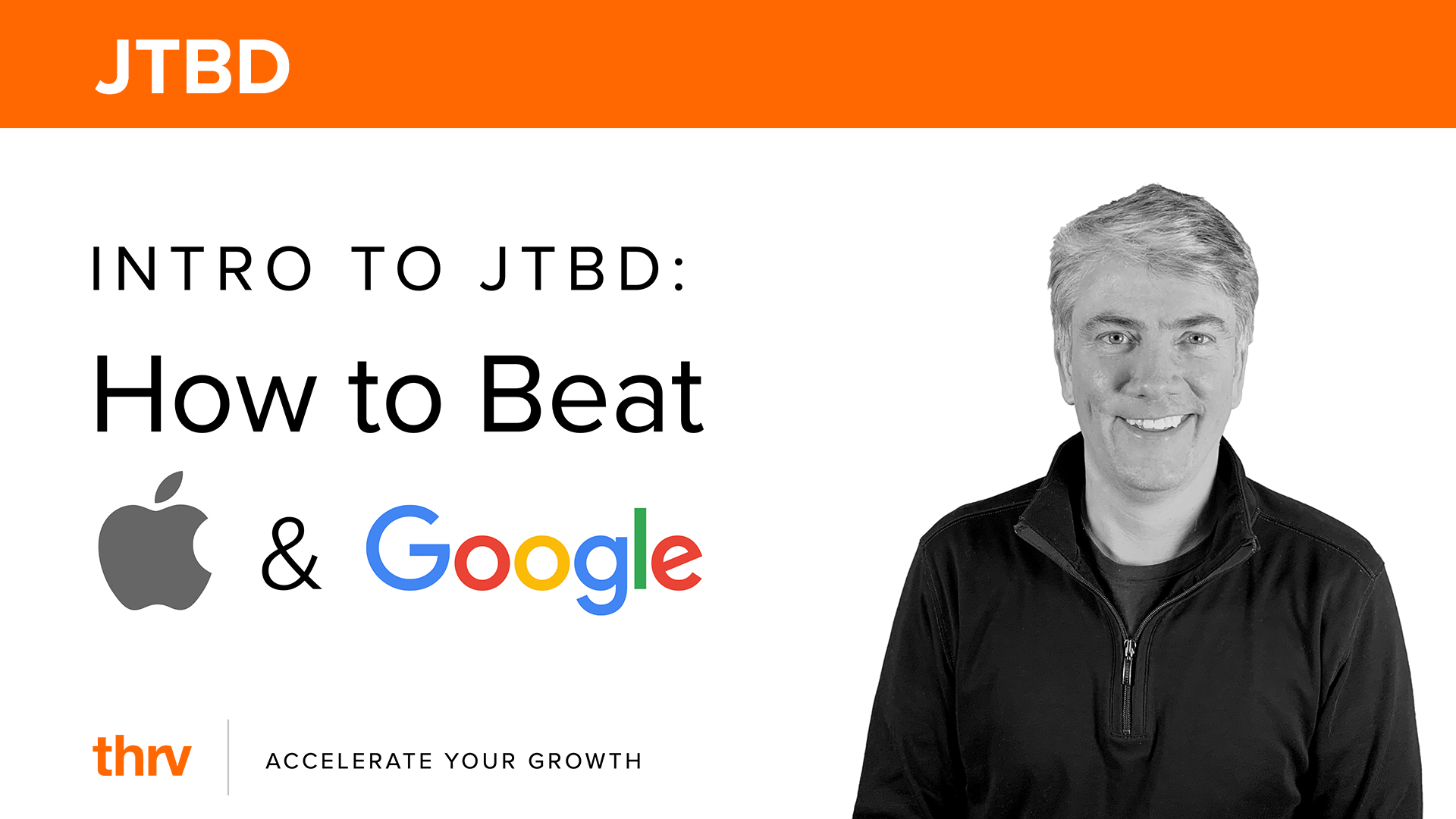Job Executor
Job Executor is a key concept in the Jobs to be Done (JTBD) framework that identifies individuals who help job beneficiaries get their jobs done using current solutions in the market. Understanding the role of job executors is essential for portfolio companies to develop effective product strategies and mitigate long-term market risks.
Definition and Role
A job executor is an individual who helps the job beneficiary get their job done with existing solutions. They function as part of the current solution ecosystem, performing tasks that the beneficiary cannot currently perform themselves due to skill requirements, time constraints, regulatory requirements, or technological limitations.
In the JTBD framework, job executors are distinguished from job beneficiaries (who directly benefit from getting the job done) and purchase decision makers (who decide which solutions to buy). This distinction is critical for understanding market dynamics and developing effective growth strategies.
The Evolving Role of Job Executors
A fundamental insight of the JTBD framework is that markets naturally evolve in a direction that reduces or eliminates the need for job executors. Over time, new solutions emerge that enable job beneficiaries to get more of their job done directly, without requiring specialized intermediaries.
This evolution occurs because:
- Technological Advancement: New technologies often simplify complex tasks, allowing beneficiaries to perform them without specialized training
- Customer Preference: Job beneficiaries generally prefer to control their own job execution when possible, avoiding the cost, time, and complexity of working through intermediaries
- Economic Efficiency: Removing intermediaries from the job execution process typically reduces costs and increases speed
- Market Competition: Companies compete to provide solutions that offer beneficiaries more direct control over job execution
Understanding this evolutionary pattern helps portfolio companies anticipate market changes and position their products accordingly.
Job Executors in Different Market Types
The role of job executors varies significantly across different market types:
Consumer Markets
In consumer markets, the job beneficiary and job executor are often the same person. Consumers both benefit from getting jobs done (like getting to destinations on time, creating moods with music, or preparing meals) and execute these jobs themselves.
However, even in consumer markets, job executors can be distinct from beneficiaries. For example:
- A parent (job executor) may help a child (job beneficiary) overcome anger or other emotional challenges
- A personal chef (job executor) may prepare meals for a busy professional (job beneficiary)
- A driver (job executor) may transport a passenger (job beneficiary) to their destination
In these cases, the job executor performs tasks that the beneficiary could potentially do themselves but chooses to delegate for reasons of convenience, expertise, or necessity.
Business Markets
In business-to-business (B2B) markets, job executors are frequently specialized roles within organizations who help job beneficiaries accomplish their goals:
- IT managers (job executors) help Chief Information Officers (job beneficiaries) enable secure data use
- Accountants (job executors) help Chief Financial Officers (job beneficiaries) optimize cash flow
- Marketing specialists (job executors) help CMOs (job beneficiaries) acquire new customers
These job executors possess specialized knowledge, skills, and tools that allow them to perform tasks that job beneficiaries cannot currently do themselves.
Medical Markets
Medical markets present perhaps the clearest illustration of the distinction between job beneficiaries and job executors:
- Surgeons (job executors) help patients (job beneficiaries) restore blood flow
- Phlebotomists (job executors) help patients (job beneficiaries) obtain blood samples
- Physical therapists (job executors) help patients (job beneficiaries) restore mobility
In medical markets, job executors are highly trained professionals whose expertise is currently essential for job execution. However, even in these markets, the trend toward enabling beneficiaries to accomplish more on their own is apparent, as seen in the rise of home testing kits, patient-administered treatments, and telehealth services.
Strategic Implications of Understanding Job Executors
Understanding the role of job executors in a market has profound strategic implications for portfolio companies:
Market Evolution Risk Assessment
Portfolio companies that target job executors rather than job beneficiaries face significant long-term risks. As markets evolve, new solutions typically emerge that allow beneficiaries to accomplish more of their job directly, potentially eliminating the need for executors entirely.
For example:
- Cloud-based SaaS applications have dramatically reduced the need for specialized IT staff (job executors) by enabling business users (job beneficiaries) to configure and use software directly
- Self-service investment platforms have reduced the role of financial advisors (job executors) by allowing investors (job beneficiaries) to manage their own portfolios
- Home diagnostic kits have begun to reduce the need for laboratory technicians (job executors) by enabling patients (job beneficiaries) to perform certain tests themselves
Portfolio companies must assess this evolution risk when developing their product strategies, especially if their current customers are primarily job executors rather than beneficiaries.
Dual-Audience Product Design
When job executors remain an essential part of the solution ecosystem, portfolio companies must design products that serve both executors and beneficiaries effectively:
- Beneficiary-Focused Value Creation: The product must ultimately help the job beneficiary get their job done better, as this is the source of fundamental market demand
- Executor-Friendly Implementation: The product must be designed to work effectively with the job executors' workflows, skills, and processes
- Evolution Path Planning: The product strategy should include a path toward helping beneficiaries accomplish more directly over time, in line with market evolution
This dual focus ensures that products succeed in the current market structure while positioning for future evolution.
Competitive Threat Identification
Understanding job executors helps portfolio companies identify potential competitive threats that might not be apparent in traditional competitive analyses.
The most significant threats often come not from direct competitors targeting the same job executors, but from companies developing solutions that enable job beneficiaries to bypass executors entirely. By monitoring this boundary between executors and beneficiaries, companies can anticipate disruptive threats before they become existential challenges.
Identifying Job Executors
Accurately identifying job executors in a market requires careful research and analysis:
- Job Step Analysis: By breaking down the steps in a job-to-be-done, companies can identify which steps currently require specialized executors
- Value Chain Mapping: Analyzing the flow of value in a market helps distinguish between those who receive value (beneficiaries) and those who facilitate value delivery (executors)
- Market Structure Research: Studying the roles different individuals play in getting jobs done reveals the current executor functions
- Historical Trend Analysis: Examining how executor roles have evolved over time helps predict future changes
thrv's methodology provides portfolio companies with structured approaches to conduct this analysis and correctly identify job executors in their markets.
Job Executors and Product Roadmap Strategy
Understanding job executors influences how portfolio companies develop their product roadmaps:
Short-Term Optimization
In the near term, products often need to work effectively with current job executors, addressing their needs and integrating with their workflows. This might include:
- Executor-Focused Features: Capabilities that make the product easier for executors to implement and use
- Integration Capabilities: Tools that help the product work with executors' existing systems and processes
- Training and Support: Resources that help executors adopt and effectively use the product
These elements ensure the product can succeed in the current market structure.
Long-Term Evolution
Over the longer term, product roadmaps should anticipate the evolution toward greater beneficiary empowerment:
- Direct Beneficiary Capabilities: Features that allow beneficiaries to accomplish more without executor assistance
- Automation of Executor Functions: Tools that automate tasks currently performed by human executors
- Simplified User Experiences: Interfaces that make complex functions accessible to non-specialist beneficiaries
This evolution-focused approach positions products for sustainable growth as markets change.
The Evolution of Job Executor Roles
As markets evolve, job executors don't necessarily disappear entirely. Instead, their roles often transform in several ways:
Role Elevation
As basic execution tasks become automated or directly accessible to beneficiaries, job executors often shift to higher-value activities:
- IT managers move from system maintenance to strategic technology planning
- Financial advisors shift from transaction execution to complex wealth management strategy
- Medical technicians evolve from routine testing to specialized diagnostic procedures
Portfolio companies can support this evolution by developing products that automate routine tasks while enhancing executors' ability to perform higher-value functions.
Specialization
Job executors frequently respond to market evolution by specializing in increasingly complex aspects of job execution that remain difficult for beneficiaries to perform directly:
- General IT consultants become cybersecurity specialists
- General practitioners develop expertise in specific medical conditions
- Broad financial advisors specialize in particular investment strategies or client types
Products that support this specialization can maintain relevance even as markets evolve toward greater beneficiary empowerment.
Advisory Transition
Many job executors transition from direct execution to advisory roles, helping beneficiaries make better decisions as they take on more execution themselves:
- IT managers become technology advisors to business units
- Financial brokers become financial planners
- Medical technicians become patient educators
Portfolio companies can facilitate this transition by developing products that enhance executors' advisory capabilities while empowering beneficiaries.
Job Executors in thrv's Methodology
thrv's proprietary Jobs to be Done methodology includes specific approaches for analyzing job executors and incorporating this understanding into portfolio company strategies:
- Executor Impact Assessment: Tools for evaluating how essential current job executors are to successful job completion
- Executor Evolution Risk Analysis: Frameworks for assessing the risk that new solutions will bypass current executor roles
- Dual-Audience Strategy Development: Methods for creating product strategies that address both executor and beneficiary needs
- Evolution Path Planning: Approaches for mapping how product roadmaps should evolve as executor roles change
By incorporating this executor-aware perspective, thrv helps portfolio companies develop more robust growth strategies that account for long-term market evolution.
The Strategic Value of Job Executor Analysis
For portfolio companies, understanding the role of job executors in their markets delivers several strategic benefits:
- Risk Mitigation: Identifying evolution risks associated with targeting job executors rather than beneficiaries
- Opportunity Identification: Recognizing opportunities to empower beneficiaries in ways competitors have not
- Product Differentiation: Developing solutions that address the evolving relationship between beneficiaries and executors
- Long-term Positioning: Creating strategic plans that align with the natural evolution of markets toward beneficiary empowerment
- Competitive Advantage: Anticipating market changes before competitors, enabling earlier adaptation
By deeply understanding job executors—their current role, their relationship to beneficiaries, and how this relationship is likely to evolve—portfolio companies can develop more effective growth strategies and create greater equity value with reduced risk.




